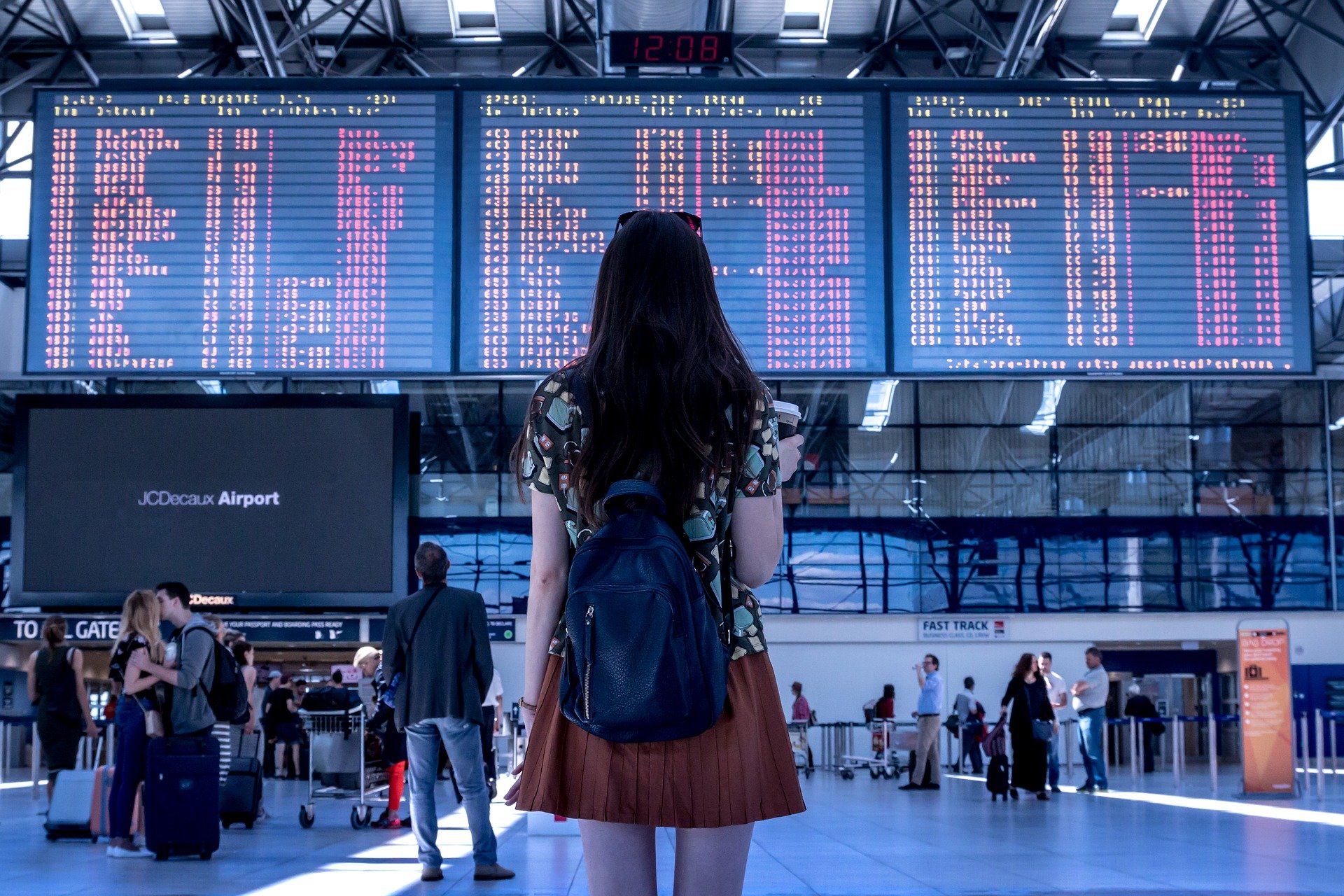I love airports.
Just walking through a few terminals, it’s a small snapshot of our crazy world. People rip shots at the bar while soldiers return from deployment to their families, concurrent with a funeral procession and others typing furiously at keyboards or shouting through a phone.
Airports are among the few remaining hubs in which people aren’t divided by income level, career, religion, other than those too poor to buy tickets or those wealthy enough to charter direct flights.
Everyone just wants to get to their destination, but since most are in a somewhat friendly mood since they’re on vacation, happy to be traveling, or just let their guard down briefly, people cross paths who otherwise never would.
The world’s chaos is a priceless formula we can track throughout the dawn of time to innovation.
You bump into someone supporting your alma mater at a coffee shop and learn about a new business you love, two friends spend four years during college and pursue business ideas, or you hit on a cute girl at a bar who becomes your wife.
These are seemingly-random events too complex to understand, such as how one of my best friends from high school in Illinois is currently attending law school in Washington D.C. with one of my college peers who went to Michigan.
The pandemic disrupted random chances for which anything is possible. The government shut down some businesses that thrived on socialization, told even healthy residents they would likely die if they continued working out, and in California, officials dumped sand in a skateboard park.
We don’t order from our barrista in the morning before work, pass the local school bus, and see our regularly-scheduled gym crew in some states. And if companies transfer to a more heavy remote-central, our local businesses and city tax revenues are going to take the hit.
Many turned to online communication like facetime, zoom, or clubhouse and discord— incredible options that don’t replace in-person interaction. Millions herded to dating apps, clubhouse chats, and virtual happy hours, but it’s not replacing the genuine chaos before the COVID-19 era. Hours of wincing at a zoom screen, even though you stopped listening to the conversation twenty minutes ago, is nothing like a night out at the bar with your closest friends or a significant ither.
We’ve missed out on meeting significant others, celebrating holidays and birthdays with loved ones, on promotions, and developing career capital.
Most of all, we missed out on calibrating our riskometers. Someone who shares an article about six COVID-19 vaccines out of seven million possibly causing blood clots read and shared it while that person is driving home from work at 80 mph— an activity much likelier to die from than COVID-19, its vaccine, or even a shark attack.
Some equate eating outdoors at a restaurant to attending a sweaty, close-contact nightclub in Indianapolis. Others believe buying groceries in-person is as risky as flying on a crowded Spirit flight.
After a year of the government dictating what we should and should not do, people are terrified of seeing more than ten people in a room together.
But it’s not fair to only highlight the bad.
Companies that shuttered typical product consumption during World War II to help fight an intercontinental battle also pivoted production to creating personal protection equipment, ventilators, and vaccinations that saved lives. Breweries served up hand sanitizer instead of booze, the world learned exactly how much work can be done remotely, and governments started recording and posting online public meetings.
People also quit or got fired from jobs they’ve hated, were underpaid, or had burnt out. The global shock knocked sense into many Americans they must save for emergencies, the reality of how close everyone is to some form of bankruptcy, foreclosure, or eviction, and that no job on earth is secure.
Young lovers started their life in one of the worst global events in a century, meaning that hopefully, it can only get better from here. Young families returned to rural roots after experiencing exactly how much it sucks to live in a locked-down metro city while paying for the ZIP code but being able to tap little to none of its benefits. Other couples finally got to spend time together, when in the ordinary world, they only interacted for a few hours after commuting to work and eating dinner.
And for a select few, the silence, solitude, and sparse opportunities honed in exactly how short our lives are and why we must act expeditiously on our goals. Life can end at any time, and we’ll only be remembered for what we accomplished, how much we helped one another, and what we contributed to the world.
